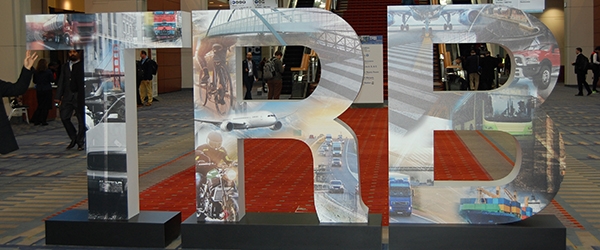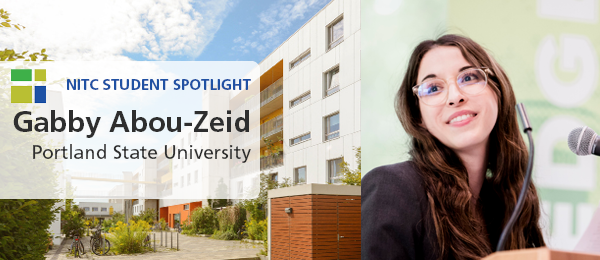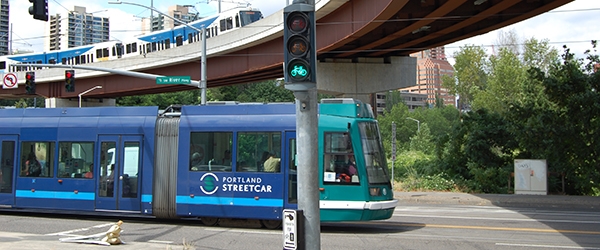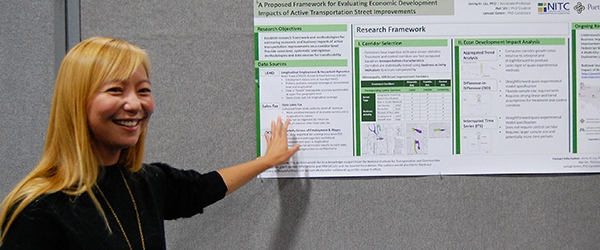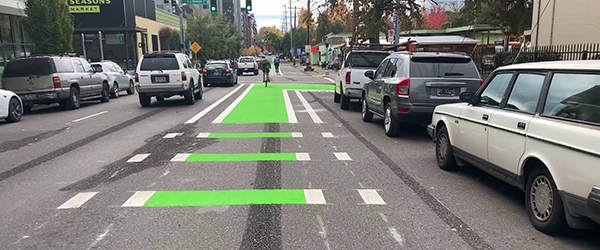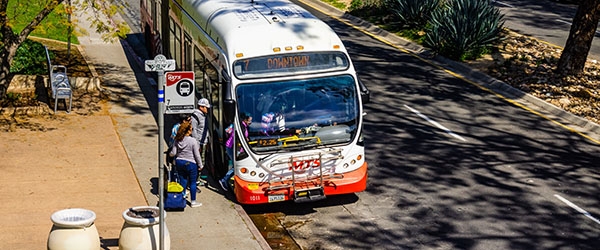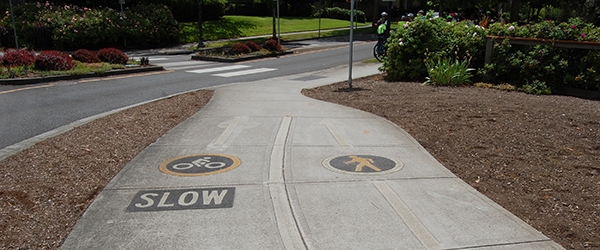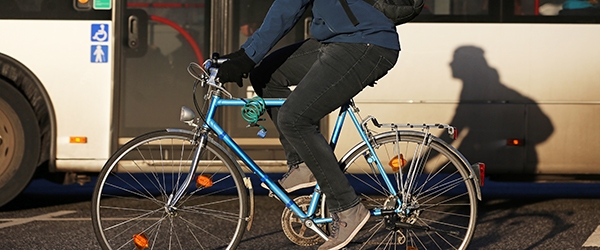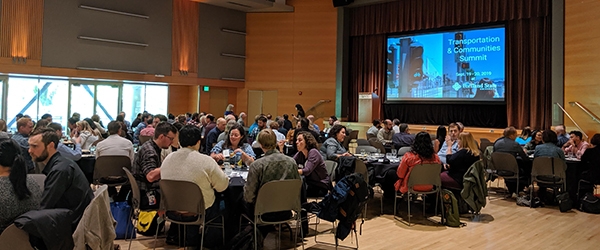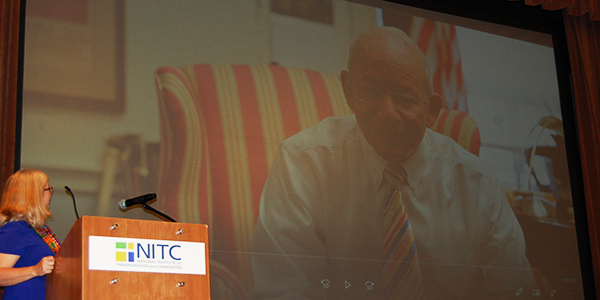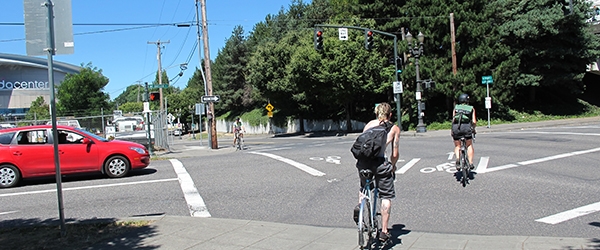We've collected posters and presentations of NITC research at TRB. Explore the links below to see what NITC researchers brought to D.C. this year—the below projects have a connection to NITC funding, but are not necessarily representative of the full body of work that researchers at these institutions brought to the annual meeting.
Check out our TRB 2020 photo album here!
Portland State University
- (PRESENTATION) "User-Rated Comfort and Preference of Separated Bike Lane Intersection Designs" by Chris Monsere and Nathan McNeil
- (PRESENTATION) "Adaptive Bike Share: Expanding Bike Share to People with Disabilities and Older Adults" by John MacArthur, Nathan McNeil, Austin Cummings and Joseph Broach
- (PRESENTATION) "Bicycling and Bikeshare among Women of Color in 3 US Cities: Barriers and Opportunities" by...

